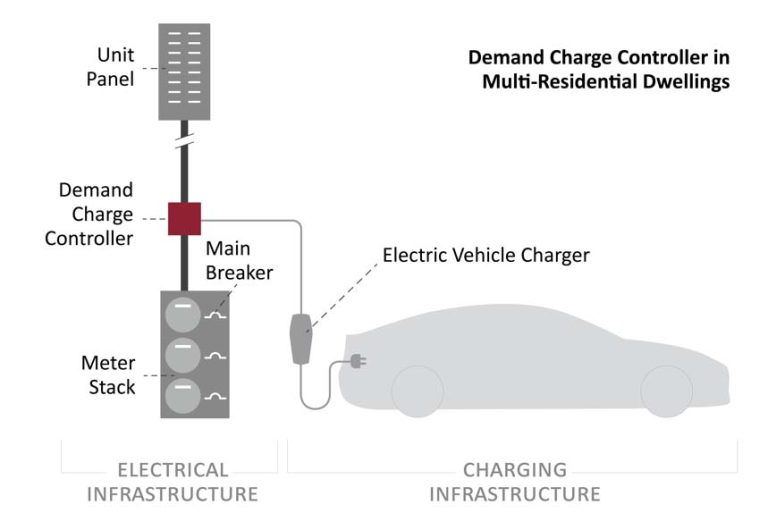Apprenticeship Training Critical to Ontario’s Future

By Sherri Hague, Powering Communities
Kevin Christie feels very lucky to be trained and mentored by the best in the business.
“My apprenticeship has been a very rich and rewarding experience,” says Christie, a 5th term apprentice with the International Brotherhood of Electrical Workers (IBEW) Local 353.
When it comes to electrical work, he has learned how important proper training and oversight is to ensuring work is done safely and correctly. Not only does the apprentice benefit from developing the necessary skills but for contractors, businesses and taxpayers, it pays off as well.
That’s why the contractors in the Greater Toronto Electrical Contractors Association (GTECA) have invested so much in the Toronto Joint Apprenticeship Council (JAC). The program, operated by GTECA and the electricians of the International Brotherhood of Electrical Workers (IBEW) Local 353, ensures each apprentice receives the most complete education available anywhere.
“The young men and women that graduate from the JAC six-year electrical apprenticeship training program are the “best of the best” in their trade,” says Kelly Burke, President of Ampere Ltd., a GTECA contractor company. “The precision, workmanship, and the level of pride of JAC graduates is far superior.”
“I’ve talked to a lot of non-union apprentices at trade school about the level of support and the learning opportunities I’ve had, and I get amazed stares,” agrees Christie. “The non-union apprentice is set up more like a lone ship at sea. Trade school is a port in the storm, but the rest of the time that individual has to do a LOT of leg work and be very proactive to get anywhere close to the same exposure.”
Better Process, Better Results
IBEW Local 353 has four dedicated training facilities in Toronto, Mississauga, Barrie and Oshawa. These buildings contain classrooms, shops, and computer labs for apprentices and also licensed members who want to upgrade their skills. The skills taught include programmable logic controllers (PLC), computer operations, network cabling, and green technologies.
Kevin Christie says he has no shortage of learning opportunities. “We get a course catalogue, with a lot of courses that you don’t need to be a journeyman to take. I feel like I’m really ahead of the game, because I’ve been able to take courses on things like solar technology, for example.”

Erik Hueglin, Director of Apprenticeship for the Toronto Joint Apprenticeship Council (JAC), oversees the program that trains apprentices.
“Our apprentices are very well supported from beginning to end with our program,” Hueglin says. “We have six full-time counsellors here in Toronto. The counsellors look at each apprentice, tailor the training program to their strengths and weaknesses, and remain as their dedicated contact throughout the apprenticeship.”
The apprenticeship begins with an 1,800 hour pre-apprenticeship program, including two weeks of safety and orientation training before the apprentice sets foot on a work site. This goes above and beyond the 9,000 hours (about four years) that all electrical apprentices in Ontario must complete. In 2018, 366 new pre-apprentices and apprentices were enrolled in the program.
The JAC process also keeps the apprentice accountable, on track, and adapts to changing circumstances.
“Professional sports teams spend millions of dollars on marquee players to ensure their team is at the top of their game. But society often discounts the importance of the men and women that build, maintain and operate our electrical systems.” says Burke. “This is despite the fact that our dependency on reliable power and robust power infrastructure is ever increasing.”
The Best Possible Training for the Skilled Tradespeople of the Future
For unscrupulous businesses, apprentices represent a source of cheap disposable labour. Businesses like these don’t invest in the apprentice’s training, nor do they care if they make it through their four year apprenticeship to become certified journeyperson electricians.
Kevin Christie says a lot of the non-union apprentices he’s spoken with have a difficult time. “Some of them talked about being given huge responsibilities before they were ready, really thrown into the deep end without knowing everything they needed to do the work. Others talked about doing the same thing over and over for years, and not getting a well-rounded apprenticeship. One common complaint I heard was having to chase employers for letters and time cards that they needed to prove they’ve done all the hours they need.”
According to a study by the Ontario Construction Secretariat, non-union completion ratios across all trades are about 75%, but are 30% higher for apprentices who sign with a union.
“Our apprentice completion rates far exceed industry standards because we select good candidates and provide the support they need. When it comes to wiring our schools, homes, hospitals, airports and other key infrastructure it is imperative that we have well trained workers for the future who can do the job safely and effectively,” said James Barry, Executive Chairman of the IBEW CCO.
Training Doesn’t Stop After Certification
The JAC facilitates apprenticeship training until the electrician earns their certificate of qualification. Once licensed, the IBEW LU 353 training program ensures member electricians are able to keep pace and learn new skills as the industry changes.
Susan Boorman, Director of Education and Training with IBEW Local 353, says, “The tools and technology are constantly evolving, so our members are either learning new skill sets or refreshing older ones. We are industry-sensitive and can quickly react to industry demands, therefore providing training to meet employer needs.”
It’s a great example of businesses working with a union to meet the needs of the market, so that everyone succeeds.
This article was published with permission by poweringcommunities.ca, a partnership of the Electrical Contractors Association of Ontario and IBEW CCO.

















